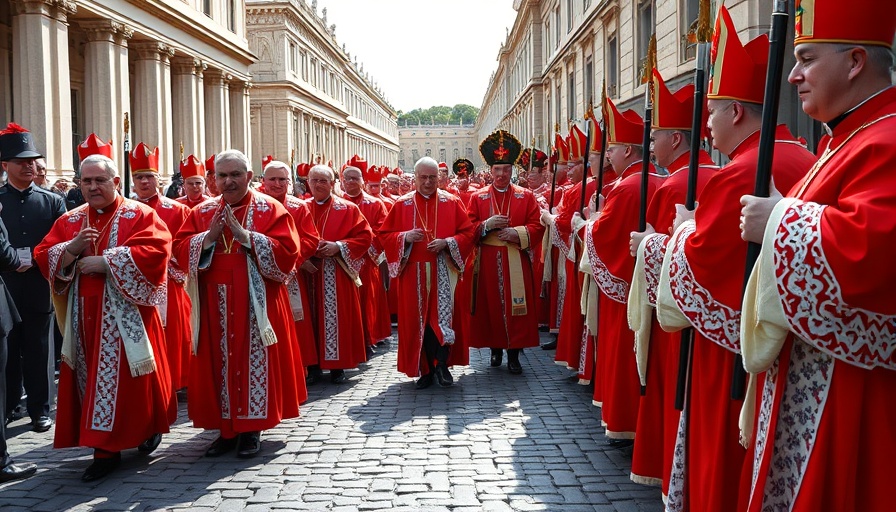
The Road to the Next Pope: A Divided Conclave
As the cardinals gather in Rome next week to elect Pope Francis’ successor, the atmosphere is charged with both anticipation and anxiety. The ideological chasm between the participants mirrors the polarized political climate seen across the globe. Traditional lines that typically define the political landscape—liberal versus conservative—do not map perfectly onto the factions within the Vatican. This convergence of ideological perspectives presents an intricate web of dialogues that challenge the future direction of the Catholic Church.
Historical Context: The Legacy of Pope Francis
Pope Francis has been a figure of transformation, emphasizing inclusivity and the church's role in combating poverty and migration issues. This has garnered him favor with many liberals worldwide but has also faced significant pushback from conservative factions within the Church who view these principles as straying from tradition. The legacy he leaves will heavily influence the decisions made in the conclave—the next pope will not only inherit his role but will also shape how the Church responds to contemporary social issues.
The Battle of Ideologies: Progress vs. Tradition
The upcoming papal election represents more than just the selection of a new leader; it is a referendum on the ideological direction of the Church. Questions abound about whether the Church should embrace change or retreat into its customs. Some cardinals advocate for a more progressive approach, emphasizing dialogue about contentious issues like divorce, LGBTQ+ rights, and the role of women in the Church. Others prioritize the traditions that have historically defined the Catholic faith. This clash of ideologies places immense pressure on the conclave.
The Philosophical Question at Hand
More significant than any single issue is the broader philosophical question: Who gets to shape the future of the Church? With diverse perspectives vying for attention, the voting cardinals will need to consider not just their ideologies but also the lives of the global Catholic community. This dialogue, if engaged appropriately, could serve as a vehicle for healing and coherence within a fragmented Church community.
Balancing Change and Continuity
As the cardinals engage in discussions, they find themselves at a pivotal moment marked by the delicate balance of maintaining continuity in faith while being open to change. Addressing critical issues like climate change, social justice, and the Church's role in modern society may prove necessary for the next pope to firmly establish moral authority in a rapidly changing world.
Looking Forward: Future Predictions and Opportunities
The outcome of this conclave will likely set a precedent for how future popes will approach significant social issues. Should the next pope embrace Pope Francis’ legacy, we could see a continuation of progressive ideals that aim to address the complexities of modern lives. Conversely, a more conservative approach could solidify practices that align more closely with historical Catholic teachings, possibly alienating younger generations.
A Local and Global Perspective
The impact of this conclave resonates far beyond the walls of the Vatican. Across the globe, Catholics are watching closely, reflecting on how their faith will adapt to contemporary societal norms. For communities in various regions—especially those facing issues of inequality, migration, and climate change—the choice of the next pope may signal critical shifts in how they experience their religious identity and community life.
An Invitation to Engage
As the conclave approaches, it is essential for the Catholic community and observers alike to engage in discussions about the future of the Church. Whether one is a devout participant, a casual observer, or someone interested in the interplay of faith and societal issues, this pivotal moment in history invites us all to reflect on how leadership and faith interact in shaping not just a religion but a community bound by mutual respect and understanding.
 Add Row
Add Row  Add
Add 




 Add Row
Add Row  Add
Add 

Write A Comment